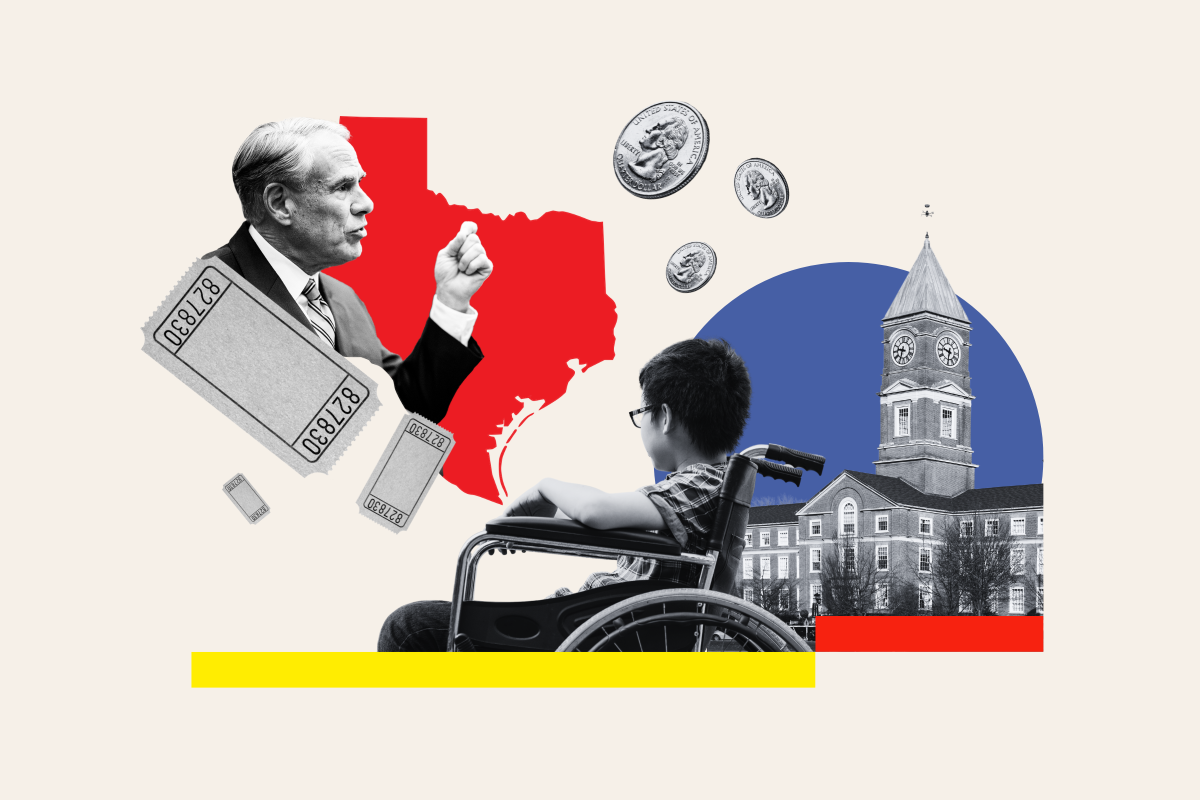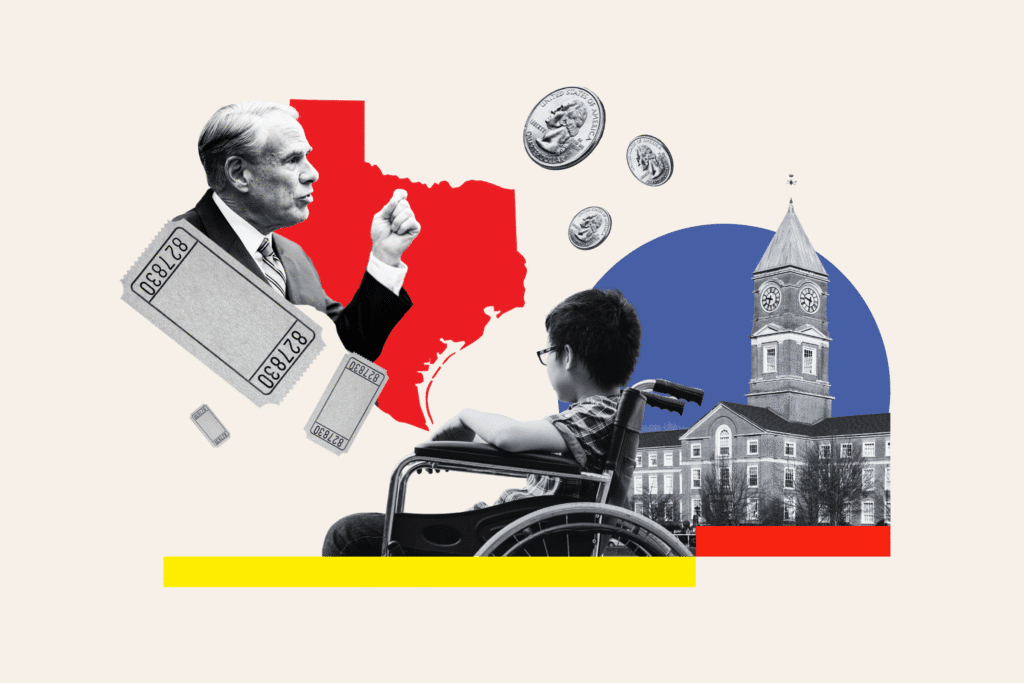Texas’s $1 billion school voucher program promises to prioritize students with disabilities.
The program, signed into law by Governor Greg Abbott earlier this month, will allow Texas families to receive $10,000 per year to help pay for students’ private school tuition. But children with disabilities can qualify for as much as $30,000 a year.
Proponents of school choice programs champion them as a way to give families the power to choose the best educational environment for their children, while opponents argue they redirect resources away from public schools and exclude students with disabilities and those from low-income households, since private schools can be selective.
In Texas, educators and advocates are raising the alarm about how the state’s program could further strain public school districts tasked with conducting the evaluations to determine whether students qualify for these services. Public school districts have to conduct those evaluations even for those students who do not plan to enroll in public schools.

Newsweek Illustration/Canva/Getty
Demand for evaluations is expected to rise since students with disabilities are first in line for the voucher program and can receive higher amounts based on their needs. Senate Bill 2 requires those evaluations to be completed within 45 days.
It’s difficult to predict how much more demand there could be because families “could just request an evaluation just to see if the spaghetti sticks,” Andrea Chevalier, the director of governmental relations for the Texas Council of Administrators of Special Education, told Newsweek.
“It’s not because they have a suspicion of a disability. It could just be because they just want to try to see if they can get the priority or the increased amount,” Chevalier said.
Chloe Sikes, the deputy director of policy for the nonprofit Intercultural Development Research Association, told Newsweek that while that all students “should get the resources they need for their education,” the voucher bill “adds an additional financial incentive for families to seek that out, potentially whether they need it or not, without any of the extra funding associated with it for school districts to be able to perform those evaluations.”
Sikes said that because private schools are under no obligation to accept or serve students with disabilities, those with the most severe disabilities or educational challenges are more likely to be excluded from the program.
“Students with really severe disabilities often are not able to access private school, and then won’t be able to access the voucher,” Sikes said.
Proponents of the voucher program have noted that public school districts were already required to conduct evaluations for students who needed them, even if they attended private school.
“It is bad enough that students with special needs have been left behind for far too long, but for public school leaders to opine about doing their federally mandated duty to evaluate students with special needs assigned to a local district, that is just downright sad,” Tera Myers, an adviser to the American Federation for Children, a school choice advocacy organization, and founder of Moms on a Mission, said in a statement to Newsweek.
“The law affords a timely response to evaluation requests, and it is in the best interest of the student and district to follow a prescribed timeline in response to requests.”
State Representative Brad Buckley, a Republican who authored the House version of the bill, told the Houston Chronicle that the evaluation requirement was based on feedback from special education advocates.
“Federal law requires that public schools evaluate any child whose family requests it. Child Find applies to all children, including those in private or home school,” Buckley said, referring to the requirement under the Individuals with Disabilities Education Act that mandates schools meet the needs of children with disabilities.
“The intent of the law is that students with disabilities who wish to seek more than the average $10,000 ESA amount seek an evaluation,” Buckley said.
Some school districts have already seen a spike in evaluation requests.
Cassandra Hulsey, the special education director at the Hutto Independent School District, told the Houston Chronicle that the district has received five evaluation requests from parents of children in private schools or homeschooled.
“The huge concern right now is if districts are already at such a shortage of professionals to complete these evaluations and complete them at the timelines that [the state] is expecting, how will we meet the increased demands of all of our families who are going to request evaluations for the purposes of a voucher?” Hulsey said.
Texas public school districts have an estimated $1.7 billion funding gap for education for students with disabilities, and evaluations, which reportedly cost between $1,000 and $2,500 to complete, are a factor.
But with schools across the nation grappling with staff shortages, especially for the experts who are among the hardest to hire, some districts are turning to outside contracting firms to complete those evaluations.
Advocates say that more demand for evaluations would also mean fewer resources.
“Any student in the voucher program gets front of the line access for that evaluation, not only to begin, but to be fully completed and conducted within 45 days,” Sikes said.
“So that means for the tens and thousands of students in those districts who attend public school…[they] get knocked down the line for their needs to be met and those services to be evaluated and implemented for them.”
Chevalier said, “An evaluation involves service providers and special education teachers. So the more that those individuals are tied up in evaluations and committee meetings…the less time they have to provide services to the kids who are enrolled in the public schools who have disabilities.”
Cameron Samuels, the executive director of Students Engaged in Advancing Texas, argued that Texas lawmakers need to provide more funding for public schools, which serve the majority of the state’s students.
“Our public schools are struggling because of budget cuts, because the state is not giving our schools money even after passing vouchers,” Samuels, who graduated from the Katy Independent School District and has disabilities himself, told Newsweek.
“Our public dollars need to go to public schools so we can all succeed.”

